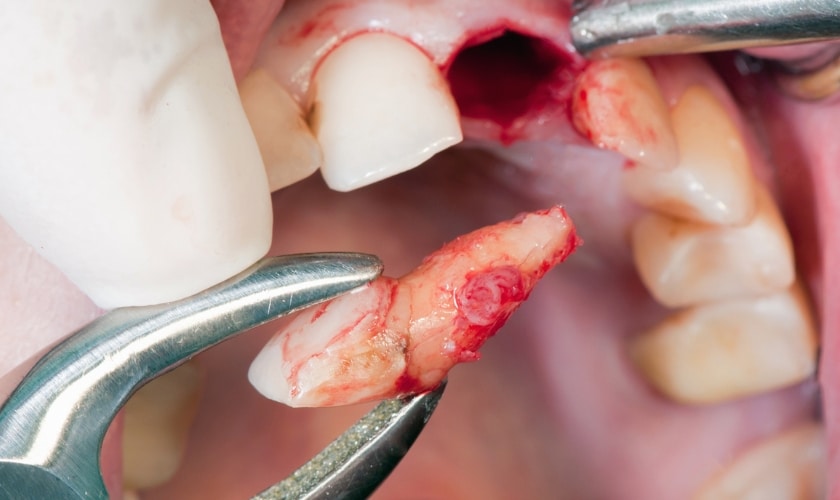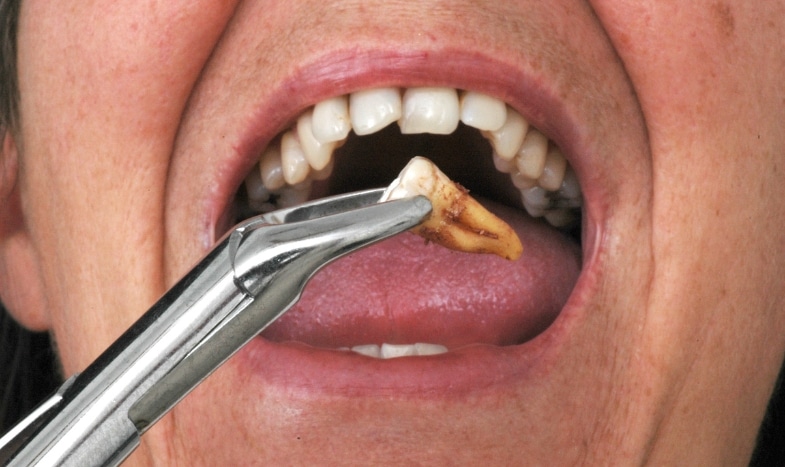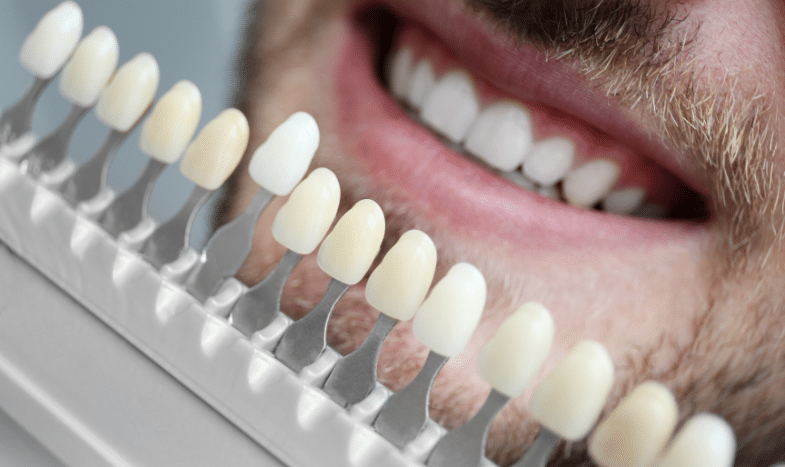
Can A Dentist Refuse To Extract A Tooth?
When it comes to dental care, customers usually expect dentists to perform all necessary procedures, including tooth extractions, without reluctance. It is crucial to note, though, that in specific situations, dentists are able to refuse treatment. In this post, we’ll examine the various reasons a dentist might decline to remove a patient’s tooth, including the complexity of the procedure, the patient’s medical background and current condition, and the requirement for informed consent.
In order to provide patients with safe and efficient dental care, dentists and patients themselves must recognize these obstacles. We may obtain a better grasp of the necessity of communication and collaboration between dentist and patient by diving into the reasons behind a dentist’s choice to deny a tooth extraction.
Reasons Dentists May Refuse Tooth Extraction:
There are several reasons why a dentist may refuse to extract a tooth. Let’s explore each of these reasons in detail, step by step:
Patient’s medical history and conditions:
Dentists put patient safety first and foremost. The risk of problems during extraction may be increased if a patient has certain medical disorders, such as a bleeding issue or uncontrolled diabetes. In such circumstances, a dentist may opt to refer the patient to a specialist for a more secure operation. Before performing any extractions, dentists must check that the patient’s overall health is stable.
Complexity of the extraction:
Some extractions are more difficult than others. Factors like the tooth’s location, root structure, or the presence of surrounding nerves or sinuses can all add to the difficulties. If a dentist believes that an extraction is too complicated or above their ability level, they may send the patient to an oral surgeon who specializes in difficult extractions. This guarantees that the surgery is carried out with the utmost care and decreases the chance of problems.
Lack of informed consent:
Before performing any therapy, including tooth extractions, dentists must get informed permission from patients. Informed consent entails giving the patient a thorough explanation of the operation, including its risks, benefits, and alternatives. Suppose a patient needs to offer informed permission or comprehend the ramifications of the extraction completely. In that case, a conscientious dentist may elect to postpone the treatment until the patient is better educated. This guarantees that patients participate actively in treatment decisions and that their autonomy and rights are protected.
By taking into account issues like medical history, case complexity, and informed consent, dentists may make educated judgments and prioritize patient safety. This collaborative approach promotes a favorable relationship between the dentist and the patient.
Legal and ethical considerations:
Dentist’s rights and obligations:
Dentists have the professional discretion to determine whether a certain therapy is appropriate for a patient. They are required, by law and ethically, to prioritize patient safety and well-being.
Patient’s rights and remedies:
Patients have the right to adequate dental treatment. If a dentist declines to provide treatment, they should explain why and provide alternatives or references. Suppose a patient believes that their rights have been infringed. In that case, they have the option of seeking a second opinion or filing a complaint with the relevant dental board or regulating organization.
Ethical implications of refusal:
Dentists must strike a balance between their need to give care and the concept of nonmaleficence, which entails preventing injury to patients. Even if it goes against the patient’s immediate interests, refusing treatment may be required if it poses an intolerable danger to their health.
Patient’s Role and Options:
Seeking a second opinion:
If a patient is unsure about a dentist’s refusal to extract a tooth, they have the right to obtain a second opinion from another competent dentist. This can provide more information and aid in making an educated decision.
Understanding the reasons for refusal:
Patients should actively engage in their dental treatment by asking questions and requesting clarity on why the dentist made the choice. This will improve communication and comprehension between the dentist and the patient.
Exploring Alternatives Before Tooth Extraction
Before recommending extraction, dentists will typically discuss and explore:
- Restorative treatments: Root canals, fillings, crowns, or bridges can often save damaged teeth, preserving their function and structure.
- Periodontal treatments: Gum disease can sometimes loosen teeth, making them appear like candidates for extraction. Deep cleaning and other periodontal treatments can address the underlying issue and stabilize the teeth.
- Monitoring and observation: In some cases, monitoring a tooth over time might be preferable to immediate extraction, especially if the issue is minor or has the potential to resolve on its own.
Dentists prioritize your well-being. If they advise against extraction, trust their expertise and engage in open communication to understand their reasoning and explore alternative solutions together.
FAQs:
Q: Does my insurance cover alternative treatments like root canals or bridges?
A: Dental insurance plans vary. Consult your insurance provider to understand your coverage for specific procedures. Dentists at Inland Choice Dental (replace with placeholder) can also assist you in navigating insurance complexities
Q: What if I’m unhappy with a dentist’s refusal to extract my tooth?
A: You have the right to seek a second opinion from another dentist. However, it’s crucial to choose a qualified and ethical professional who will adhere to professional guidelines and prioritize your long-term health.
Q: Can I force a dentist to extract my tooth?
A: No, you cannot force a dentist to perform any procedure against their professional judgment. However, you can seek a second opinion or discuss alternative solutions with your current dentist.
Q: What are the alternatives to tooth extraction?
A: Depending on the situation, alternatives might include root canal therapy, crown placement, fillings, or periodontal procedures. Consult your dentist for a personalized evaluation and treatment plan.
Q: How can I find a dentist who prioritizes tooth preservation?
A: Look for dentists who emphasize preventive care and minimally invasive procedures. Ask friends, family, or colleagues for recommendations, or search online for dentists with positive reviews focusing on tooth preservation.
At Inland Choice Dental, we understand that navigating the complexities of dental procedures can be overwhelming. Our team of experienced and compassionate dentists prioritizes open communication and patient education. We believe in exploring all available options, explaining our reasoning clearly, and working collaboratively with patients to make informed decisions that align with their individual needs and goals.





